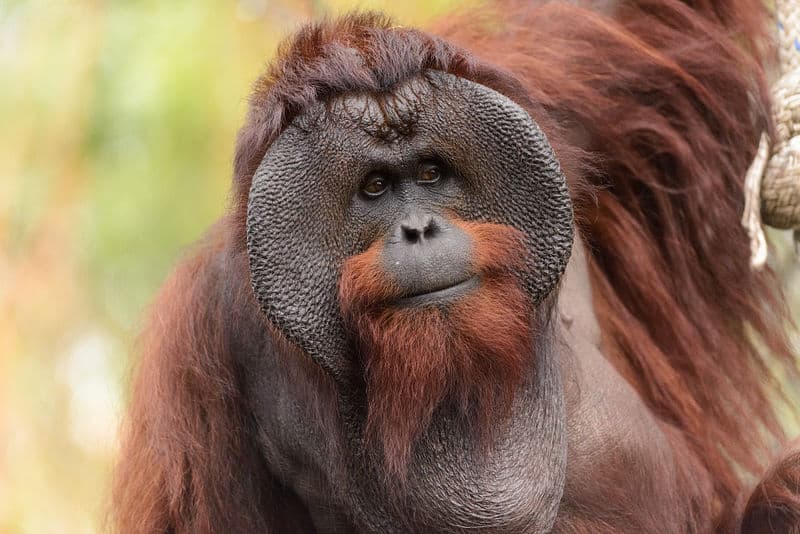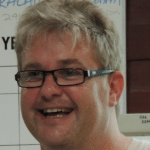Siska Sulistyo and Pakee Raj on behalf of the OVAG committee
As conservationists, most of us must have regularly joined workshops, seminars, and conferences as a requirement to improve our professional work and network. These events are often quite exhausting, serious, and sometimes intimidating, especially when you have to give a talk, right?
But OVAG is somewhat different. OVAG is a happy place for the participants, who are Indonesian and Malaysian vets working in orangutan rescue centers, as well as academia, researchers, zoo vets, and conservationists from all around the world. Assisted by many partner organisations (check our website for details!), but led by the Orangutan Conservancy and Chester Zoo, the OVAG workshop has been held annually since 2009, providing a consistent and high-quality Continuing Professional Development (CPD) program for vets, who are working in the front line of conserving orangutans and their habitat.
In their daily life, these vets work and settle in remote, rural areas, where everything is just basic, 24 hour electricity is a luxury and in some places even access to clean water is only a dream.
And then every once in a year, there is this OVAG workshop invitation, where we get the chance to leave our quiet place, and gather with people alike. Of course it doesn’t hurt that the gathering place is in a “big city” like Kuala Lumpur, Yogyakarta, or Banda Aceh and we stay in a nice hotel where food magically appears 5 times a day (when normally you have to shower with tea-colored water, your standard of convenience will surely be quite low).
But OVAG is much more than just a once a year workshop and on-going education. It provides support. Support from a diverse group of people that share the same views in the current human- wildlife conflicts, the passion for the wildlife and ultimate goal for conservation for our endangered species. Some of us that get involved in conservation get in it alone, many people around us even our families do not really know or understand us. It’s just great to be in the OVAG family where you feel you belong and you are truly supported. It gives you the kind of motivation that is gold.
OVAG workshops are designed to be fun as well as effective. We rely more on interactive sessions rather than didactic ones, and we base our work on mutual respect. We learn and discuss about health management topics such as Disease Risk Analysis, emergency medicine, field anesthesia, disease outbreak management, nutrition in captivity, etc. We also have practical sessions that cover a wide variety of clinical skills such as anesthesia, parasite examination, necropsy, etc. During these sessions, there are ice-breakers, TV show-styled quizzes (with prizes!), CPR training turned into a dance routine, darting competitions, and trips to local attractions (preferably ones that relate to wildlife, but this is not always the case).

Providing valuable life-saving skills: CPR training provided by Aimee Drane, manager of the International Primate Heart Project as part of a wider programme in managing cardiac disease in orangutans.
And it gets better every year, as you get to know your colleagues more. A few years after joining, you start to feel that OVAG workshops are a time for a scientific holiday, reunion with old friends, and making new friends. But rest assured that OVAG is serious business. Having been held continuously in the past 10 years, OVAG has covered a wide range of conservation medicine topics, and is able to follow up on topics and sort of make a structure of our learning material. But the greatest impact is not just on the learning aspect. By gathering people working in orangutan conservation, we created the feeling of togetherness instead of competition. And working together increases your impact in conservation as well as making the work more enjoyable.
The Steering Committee of OVAG is quite serious in evaluating our success, as it is certainly required by our donors and potential donors. Since 2013 we did pre- and post- workshop evaluations on the participants, and the results were analyzed and written into a scientific paper. Recently we have submitted the manuscript for publication in a scientific journal.
So, to tone this blog to the spirit of Conservation Optimist, we dare to say that OVAG network is a great example of an effort to become happy and optimistic when working in conservation. Being happy at work is essential to be effective as a professional, and it creates togetherness. Working together, we can achieve so much more! We are all excited to be part of the Conservation Optimism family.

Raffaella Commitante
The Orangutan Veterinary Advisory Group (OVAG) is composed of heroes! People that are working on the front lines of the war against extinction for orangutans and other endangered species. They give their time and knowledge, at the cost of higher paying jobs, time spent with family, time spent creating a family, all while spending time in isolated areas with often limited resources. These are the heroes that work within the OVAG network. They come from in Indonesia, Malaysia, Thailand, China, Australia, Singapore, New Zealand, England, the United States, Scotland, and Germany. Some are in the field, others are spread throughout the globe. This is OVAG!

Steve Unwin
OVAG and Conservation Optimism are a perfect match. Proving that together we really can make a difference. To be part of something bigger than yourself that is actually changing how conservation is tackled. But even more importantly – re-igniting the passion for working in conservation to protect not just the other animals and their homes, but acknowledging it’s our own future we are fighting for as well. I’m inspired every day by the wonderful friends I have with OVAG, and makes me genuinely hopeful for conservation and the future of our planet.



